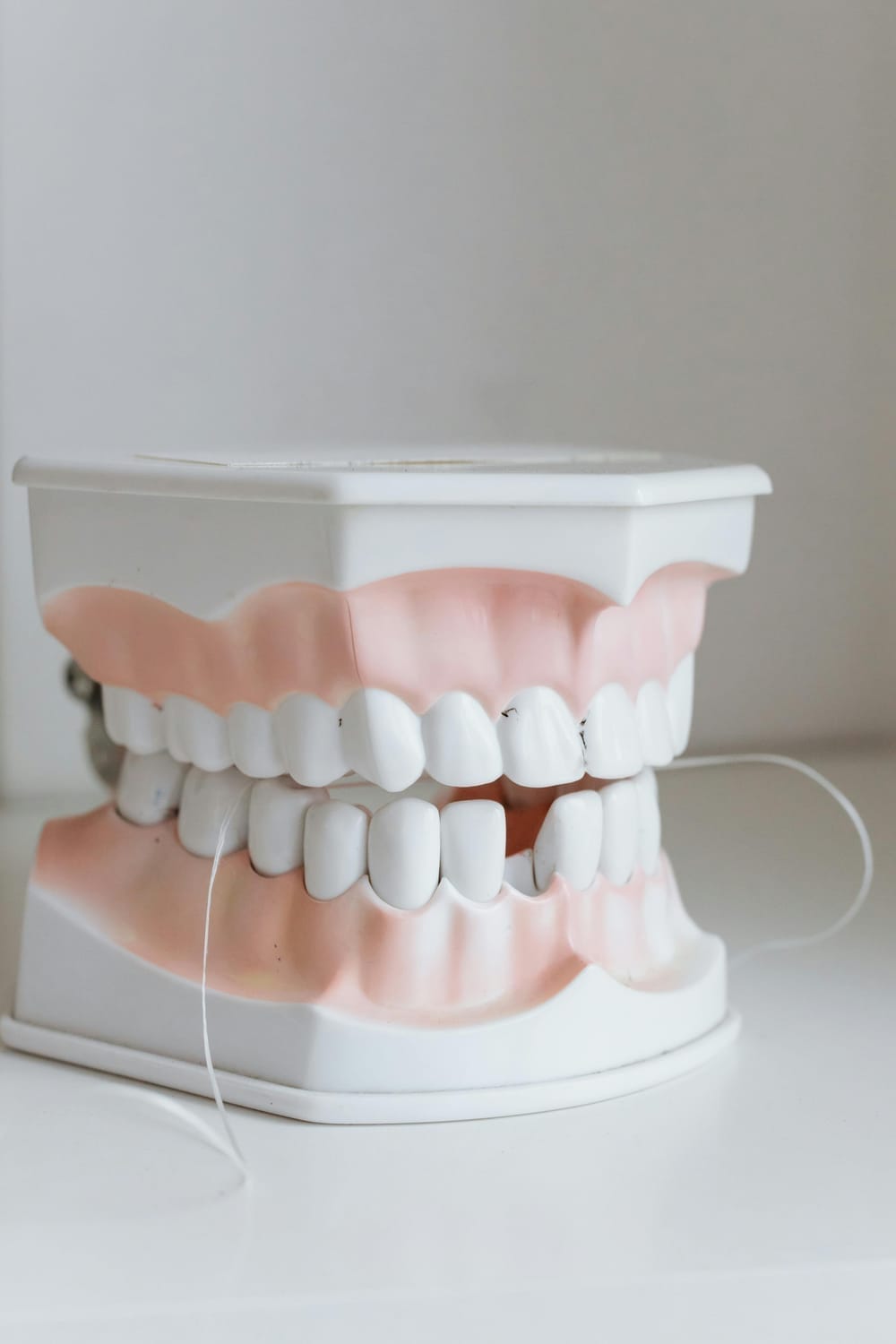Is Teeth Chattering a Sign of Anxiety?
Teeth chattering is commonly associated with cold weather, but many people experience this involuntary response in situations that have nothing to do with temperature changes. If you've noticed your teeth chattering during stressful situations or moments of heightened emotion, you might be wondering if this could be a sign of anxiety.

Understanding Teeth Chattering as an Anxiety Symptom
Teeth chattering can indeed be a common symptom of anxiety and represents your body's response to emotional stress. When you experience anxiety, your nervous system activates the fight or flight response, releasing stress hormones that can cause various physical symptoms throughout your body tissues.
During a panic attack or periods of chronic stress, your jaw muscles may contract involuntarily, causing your upper teeth and lower teeth to rapidly knock together. This physical response occurs because anxiety affects your internal body temperature regulation and can trigger involuntary muscle movements in your facial muscles.
The Connection Between Anxiety and Oral Health
The relationship between mental health and oral health is more connected than many people realize. Different people experience anxiety symptoms in various ways, and for some, this includes oral pain and dental issues. When stress levels remain elevated over long periods of time, it can lead to several oral health problems:
1. Sleep Bruxism and Awake Bruxism
Anxiety disorder often manifests through grinding of teeth, known medically as bruxism. Sleep bruxism occurs during rest, while awake bruxism happens during conscious hours. Both conditions can cause significant damage to tooth enamel and result in jaw pain. I know this first hand. I am a teeth grinder and I have to use a special nightguard as I have had damage to my front teeth in the past. The symptoms of bruxism include:
Worn or flattened teeth
Increased tooth sensitivity
Jaw muscle tension
Headaches upon waking
2. Temporomandibular Joint Disorders
Chronic stress can affect the temporomandibular joint, which connects your lower jaw to your skull. This can lead to TMJ disorders, causing pain and difficulty with jaw movement. The constant tension from anxiety can create muscle spasms in the jaw area, contributing to both teeth chattering and ongoing discomfort.
Medical Conditions That May Cause Teeth Chattering
While anxiety is a possible cause of teeth chattering, it's important to understand that various reasons can trigger this involuntary response. A healthcare provider should evaluate persistent teeth chattering to rule out underlying medical conditions:
1. Neurological Conditions
While anxiety is a possible cause of teeth chattering, it's important to understand that various reasons can trigger this involuntary response. A healthcare provider should evaluate persistent teeth chattering to rule out underlying medical conditions:
2. Sleep Disorders
While anxiety is a possible cause of teeth chattering, it's important to understand that various reasons can trigger this involuntary response. A healthcare provider should evaluate persistent teeth chattering to rule out underlying medical conditions:
3. Other Health Problems
Additional health problems that may cause teeth chattering include:
Medication side effects, particularly from selective serotonin reuptake inhibitors
Genetic factors that predispose individuals to anxiety
Periodontal disease and other dental issues
Difficulty breathing or respiratory conditions
When to Seek Professional Help

If teeth chattering significantly impacts your daily life or occurs alongside other concerning symptoms like chest pain, difficulty breathing, or rapid heart rate, it's essential to consult with a healthcare professional. A qualified health provider can conduct a thorough oral exam and evaluate your symptoms to determine the underlying cause.
Early diagnosis is crucial for effective treatment. Your healthcare provider may recommend various approaches depending on whether your teeth chattering stems from anxiety, a medical condition, or other risk factors.
Treatment Options for Anxiety-Related Teeth Chattering
Several treatment options can help manage anxiety-related teeth chattering:
1. Professional Medical Interventions
Cognitive Behavioral Therapy: This evidence-based approach helps identify and change thought patterns that contribute to anxiety
Medication: In some cases, healthcare professionals may prescribe medications to manage anxiety symptoms
Biofeedback Therapy: This technique teaches you to control involuntary responses through awareness and relaxation
Self-Care and Lifestyle Changes
Deep Breathing Exercises: Practice controlled breathing to activate your body's relaxation response
Progressive Muscle Relaxation: Systematically tense and release muscle groups to reduce overall tension
Mindfulness Meditation: Regular practice can help reduce stress levels and improve emotional regulation
Regular Exercise: Physical activity naturally reduces stress hormones and promotes better mental health
Oral Health Protection
Mouth Guard: A custom-fitted guard can protect your teeth from damage during sleep bruxism
Regular Dental Visits: Consistent dental care helps monitor and address any oral health issues
Good Dental Hygiene: Proper oral care prevents additional dental problems that could worsen anxiety
Managing Anxiety in Daily Life
Learning to manage anxiety effectively can significantly reduce teeth chattering and other physical symptoms. Consider these approaches:
Stress Management Techniques
Identify and avoid triggers when possible
Practice relaxation techniques during stressful situations
Maintain a consistent sleep schedule
Limit exposure to loud noises and other environmental stressors
Consider using a journal or other tool to help you with managing stress. We have lots of tools to offer, as well as a free quiz and guide on how you deal with stress here.
We also have a free ebook on how to manage chronic stress
Building Support Systems
Join a support group for people with anxiety disorders
Maintain open communication with healthcare professionals
Seek expert advice when symptoms worsen
Don't hesitate to ask health questions during medical appointments
Lifestyle Modifications
Limit caffeine and alcohol consumption
Maintain a balanced diet
Create a calming bedtime routine
Practice good time management to reduce daily stress. This is so important!
The Importance of Professional Medical Advice
While this information provides general guidance, it's crucial to remember that individual experiences vary significantly. What works for one person may not be effective for another. Always seek professional medical advice for persistent symptoms or health concerns.
If you're experiencing teeth chattering along with other anxiety symptoms, don't dismiss it as merely a response to cold temperatures. Your body is communicating important information about your mental and physical well-being.
For those seeking additional support, consider downloading health apps like the Practo app (download free Practo app) to connect with healthcare providers and access reliable health information. However, remember that such tools should complement, not replace, traditional medical care.
Summing Up
Teeth chattering can indeed be a sign of anxiety, representing your body's natural response to emotional stress. While it's an involuntary response that many people experience, persistent teeth chattering shouldn't be ignored, especially when it impacts your quality of life.
Understanding the connection between anxiety and oral health empowers you to take proactive steps in managing your symptoms. Whether through professional help, lifestyle changes, or a combination of treatment approaches, relief is possible. Remember to always follow the advice of your physician and work with healthcare professionals to develop a comprehensive treatment plan that addresses both your mental health and oral health needs.
By recognizing teeth chattering as a potential anxiety symptom and taking appropriate action, you can work toward better overall health and improved quality of life. In such cases, the key is to address both the underlying anxiety and protect your oral health through proper care and professional guidance.
Let us know what you think in the comments!
Newsletter
Subscribe to the newsletter and stay in the loop! By joining, you acknowledge that you'll receive our newsletter and can opt-out anytime hassle-free.
Created with © systeme.io





